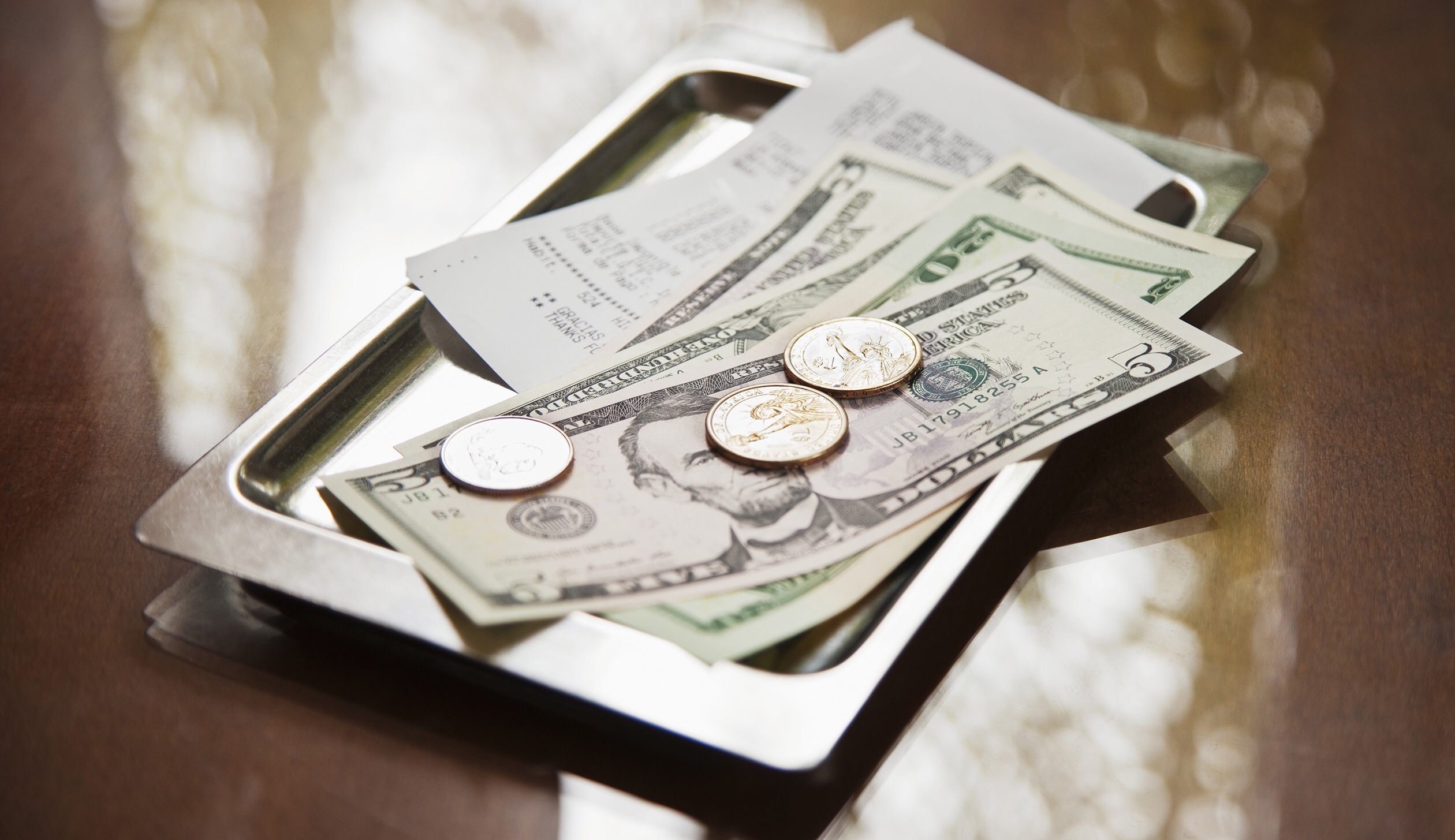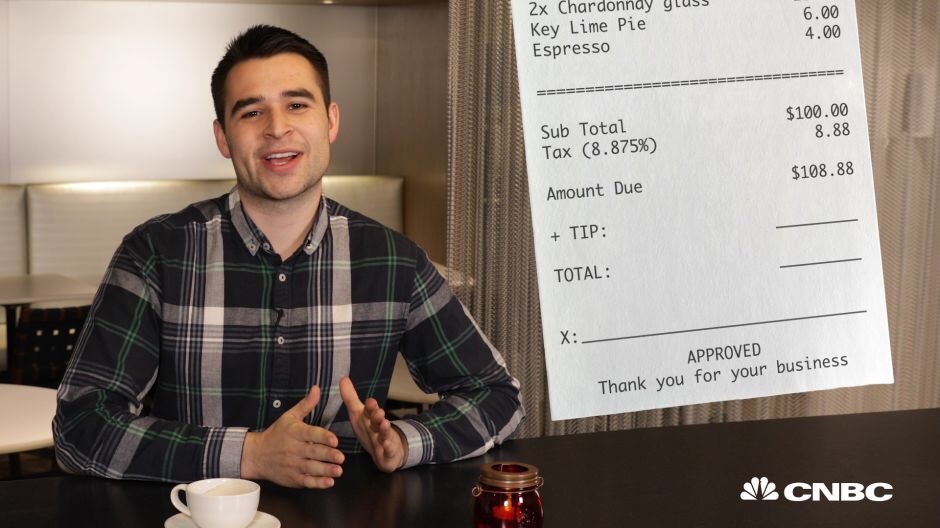A viral video advertising a nifty “hack” to save money on tipping caused a stir last week on social media. Instead of calculating a percentage of the total bill, the video by CNBC reporter Zack Guzman encourages diners determine their tip by calculating a percentage of the pre-tax total. Understandably, his advice was perceived as a way to shortchange waitstaff rather than sound financial advice that would “help save you over $400 a year.” Even though the video was originally posted over a year ago, Food Twitter lost its shit.
In Guzman’s defense, his video and the accompanying article highlight the fact that hourly wages for tipped employees in most states are significantly below the minimum. He isn’t arguing that waitstaff deserve less money. He’s simply trying to offer an alternate way of computing gratuity. Even though tipping is a voluntary act, restaurant goers (including millennials who lack disposable income) increasingly resent having to compensate for the shortfall in restaurant worker’s income.
Ironically, a majority of people who live in states with 8-9% sales taxes look at their bill and blindly double the tax when they leave a tip. In doing so, they’re tipping on the pre-tax amount. Restaurants that host private events often institute policy to assign gratuity as a percentage of the subtotal of the bill before tax. In other words, it’s already not unusual for people to calculate gratuities exactly the way that Mr. Guzman is advocating they do. So why is everyone so upset?

Tipping shouldn’t be a thoughtless act. If the staff spent the entire course of your meal focused on your satisfaction, the least you can do as a guest is take a moment to reflect on its service when you settle your bill. Your generosity shouldn’t be predicated on a judgement of the service experience or your “scoring” the level of hospitality you received. It’s important to remember that the price of your food hinges on the willingness of a team of individuals to serve you for less than minimum wage with the hope that generous tipping will make up the difference.
The problem with Mr. Guzman’s video is that it frames tipping as a superfluous expense, one that ignores the relationship that gratuity should have with performance. In its purest form, a tip is a gesture of appreciation to a staff of people who’ve facilitated your enjoyment of delicious food in an atmosphere other than your own home for a few hours without having to clean up after yourself. When the staff does it well, a generous tip should be bestowed on those facilitators with pleasure. Saving a few bucks on your meal is always nice, but no one—except perhaps maybe Mr. Guzman—thinks it’s should come at the expense of a server’s income.
Waiters are accustomed to being victims of schemes that shortchange them on their tips. It often occurs unintentionally. Guests who pay with gift cards or partial cash payments, for example, will often absentmindedly tip on the remaining balance after the gift card or cash is deducted. Large parties find convoluted, mathematically-impossible ways to divide the bill then forget to include a proper tip in their calculus.
Guests who don’t feel responsible for tipping on wine charges might ask to split their bottles onto a separate check. It could be they have an expense account and the company won’t subsidize their alcohol consumption (or they need a way to hide it). Other times, they want to treat the rest of their party to a few expensive bottles or just don’t want to share the expense if everyone at the table wasn’t drinking. Either way, it’s a dreaded scenario for waiters, because all too often separating the wine charges is a stealth way guests avoid tipping a percentage of their total bill.
Of course, the tip doesn’t always suffer in these situations but any abnormalities in the payment process are usually a bad omen. Waiters are used to inconsistent tips, but it stings a lot more when the skimming is on purpose. Guests who are displeased with service have a right to tip poorly or not to leave a tip at all, but they should do so mindfully. Reducing the act of tipping to a simple mathematical equation—especially one that relies on this type of accounting gimmickry—does everyone a disservice.


Tipping is not the norm in Europe. I live in Belgium and at most one rounds up the bill. This includes restaurants. Except if service and food were truely exceptional for the price paid.